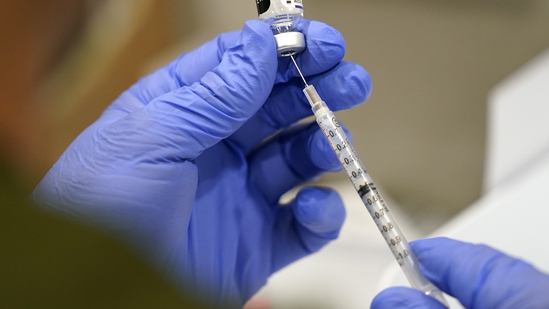Shaping India’s health care future
This article is authored by Dr Rakesh Gupta, chairman, Sarvodaya Healthcare, New Delhi.
As we step into 2025, the future of health care in India looks both dynamic and promising. With technological advancements and a focus on accessibility, the sector is set to transform how patient care is delivered and experienced. From digital tools to innovative treatments, 2025 offers significant potential to enhance healthcare for millions.

Despite challenges like affordability and accessibility, especially in rural areas, emerging trends are going to address these issues with innovative solutions that will prioritize efficiency and patient care above all.
Key trends in 2025:
· Remote Patient Monitoring (RPM)--RPM is transforming how chronic diseases and postoperative care are managed. Wearable devices, sensors, and mobile apps now enable real-time tracking of vital signs, helping patients in remote areas access consistent care without frequent hospital visits. With chronic diseases accounting for nearly 60% of deaths in India, RPM is a crucial healthcare solution.
Looking ahead, wearable 2.0, such as implantable devices like brain-computer interfaces (BCIs), are gaining momentum. These technologies show potential in managing conditions like chronic pain, epilepsy, and paralysis.
· Artificial Intelligence (AI) and machine learning (ML)--although widely utilised in 2024, AI and ML are expected to gain significant momentum in 2025, transforming health care on a larger scale.
These technologies enhance diagnostics, treatment planning, and predictive analytics, playing a crucial role in the early detection of critical illnesses. AI-powered chatbots on telemedicine platforms will also improve patient support by quickly addressing questions and guiding users more effectively.
· Digital Therapeutics (DTx)--Digital therapeutics (DTx) are set to become a game-changer in health care by 2025. These evidence-based, software-driven solutions combine digital tools like mobile apps and wearables with behavioural science to prevent, manage, and treat chronic conditions. In India, where millions struggle with lifestyle-related diseases such as diabetes, DTx has the potential to transform care by improving medication adherence and enabling remote monitoring of health metrics.
· Blockchain in health care--Blockchain is set to transform healthcare by securely managing medical records and giving patients greater control over their data. In India, it aligns with digital health initiatives like the Ayushman Bharat Digital Mission, strengthening the healthcare system. Applications such as tracking organ transplants will improve transparency and trust, ensuring safer and more efficient health care processes.
· Virtual and Augmented Reality (VR/AR)--VR and AR are transforming medical education and patient care. VR simulations provide risk-free surgical training, while AR tools help doctors visualize medical conditions and explain treatments. In India, VR-based pain management is gaining traction, particularly for chemotherapy and pediatric care. AR-enhanced rehab programs for stroke patients are also improving recovery outcomes.
· Personalised medicine--Advances in genomics and biomarker research are driving personalised medicine in India, especially in oncology. Hospitals are adopting next-generation sequencing (NGS) technologies to customise cancer treatments. Pharmaceutical companies are exploring RNA-based therapies for rare disorders. However, making these treatments affordable and expanding insurance coverage will be significant issues in the coming year.
· Enhancing patient engagement--Gamification is set to become a key tool for improving patient engagement in 2025. Apps featuring rewards and progress trackers will motivate users to adopt healthier habits. In India, gamified interventions will be increasingly used to manage lifestyle diseases like hypertension and obesity. They will also help ease anxiety in pediatric care and improve vaccine adherence, making healthcare more engaging and patient friendly.
The future of health care in India is not just about adopting cutting-edge technologies; it’s about creating a system that is inclusive, compassionate, and responsive. By embracing trends like RPM, AI, and blockchain while prioritising patient engagement, India is poised to develop a health care ecosystem that benefits all.
This article is authored by Dr Rakesh Gupta, chairman, Sarvodaya Healthcare, New Delhi.
All Access.
One Subscription.
Get 360° coverage—from daily headlines
to 100 year archives.



HT App & Website







